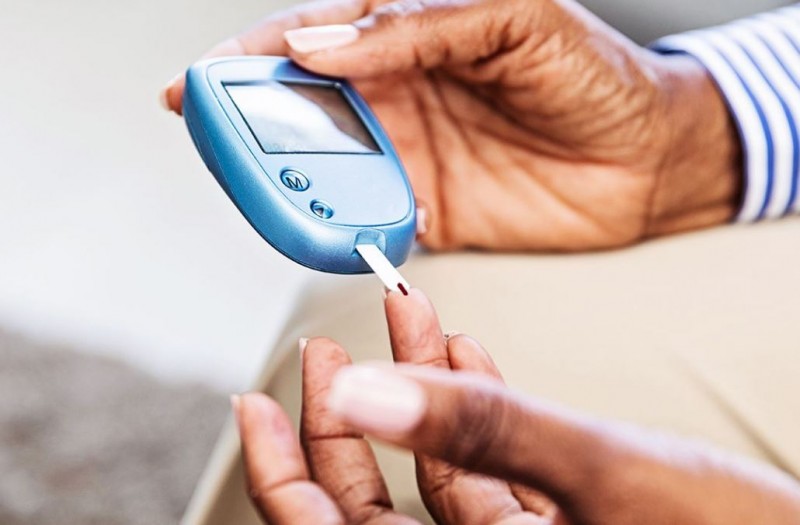
In today’s fast-paced world, managing health conditions like diabetes has become a critical concern. While conventional treatments are available, many people are turning to traditional methods like Ayurveda to complement their diabetes management. Ayurveda, a holistic healing system that dates back over 5,000 years, offers several natural remedies and lifestyle recommendations to help control blood sugar levels and promote overall well-being. Here’s a detailed guide on how to use Ayurvedic methods to manage diabetes effectively.
Understanding Diabetes and Its Management
Diabetes is a chronic condition that affects how your body regulates blood sugar (glucose). In type 1 diabetes, the body does not produce insulin, a hormone necessary for glucose absorption. In type 2 diabetes, the body either resists insulin or does not produce enough of it. Managing diabetes involves balancing blood sugar levels through medication, diet, exercise, and lifestyle changes.
Ayurvedic Approach to Diabetes
Ayurveda focuses on balancing the body’s energies (doshas) to maintain health and prevent disease. For diabetes management, Ayurveda emphasizes the importance of diet, herbal remedies, lifestyle modifications, and mental well-being.
1. Dietary Recommendations
Diet plays a crucial role in managing diabetes. Ayurveda suggests incorporating the following foods and practices into your diet:
Bitter Vegetables: Include bitter gourd (karela), bitter melon, and neem leaves in your diet. These vegetables are known for their anti-diabetic properties and can help regulate blood sugar levels.
Whole Grains: Opt for whole grains like barley (jau), millet (bajra), and quinoa instead of refined grains. These grains have a low glycemic index and help in maintaining stable blood sugar levels.
High-Fiber Foods: Consume foods rich in fiber, such as fruits (like apples and pears), vegetables, legumes, and seeds. Fiber helps in slowing down the absorption of sugar into the bloodstream.
Avoid Excessive Sugar: Limit the intake of refined sugars and sweetened foods. According to WHO guidelines, you should not consume more than 5 grams of sugar per day, equivalent to about 1 teaspoon.
2. Ayurvedic Herbs and Remedies
Several Ayurvedic herbs are known to support blood sugar management:
Fenugreek (Methi): Fenugreek seeds are beneficial for controlling blood sugar levels. You can take them in the form of seeds, powder, or capsules.
Gurmar (Gymnema Sylvestre): Known as the "sugar destroyer," gurmar can reduce sugar cravings and improve insulin function. It is available in the form of capsules or powder.
Turmeric: Turmeric contains curcumin, which has anti-inflammatory and anti-diabetic properties. Adding turmeric to your diet or taking it as a supplement can help manage diabetes.
Cinnamon: Cinnamon can enhance insulin sensitivity and lower blood sugar levels. It can be added to teas, smoothies, or daily meals.
Amla (Indian Gooseberry): Rich in vitamin C and antioxidants, amla helps in regulating blood sugar and boosting immunity. It can be consumed fresh or in the form of juice or powder.
3. Yoga and Physical Activity
Incorporating yoga and regular physical activity into your routine can greatly benefit diabetes management:
Yoga Poses: Practice yoga poses like Madhukasan (honey pose), Vajrasana (diamond pose), and Padmasana (lotus pose). These poses help in balancing blood sugar levels and improving overall metabolism.
Breathing Exercises: Perform Kapalbhati (skull-shining breath) for 15 minutes daily. This breathing technique can help in managing stress and improving insulin sensitivity.
Regular Exercise: Engage in regular physical activities like walking, jogging, or swimming. Exercise helps in maintaining a healthy weight and improving insulin sensitivity.
4. Lifestyle Modifications
Adopting a healthy lifestyle is crucial for effective diabetes management:
Stress Management: Practice relaxation techniques such as meditation, deep breathing, and mindfulness to manage stress. High-stress levels can negatively impact blood sugar levels.
Adequate Sleep: Ensure you get 7-8 hours of quality sleep each night. Proper rest is essential for maintaining balanced blood sugar levels.
Hydration: Drink plenty of water throughout the day to stay hydrated and support overall health.
Monitoring and Consultation
Regular monitoring of blood sugar levels is essential to assess the effectiveness of Ayurvedic methods. It is also crucial to consult with healthcare professionals before making any significant changes to your diabetes management plan. Ayurvedic treatments should complement conventional treatments, not replace them.
Ayurvedic methods offer a holistic approach to managing diabetes by focusing on diet, herbal remedies, yoga, and lifestyle changes. By incorporating these practices into your daily routine, you can achieve better control over your blood sugar levels and improve your overall health. Remember to combine these methods with regular medical check-ups and a balanced approach to ensure effective diabetes management.
People Who Should Avoid Drinking Black Coffee Before Going to the Gym to Prevent Harm
Chandipura Virus Spreads to Rajasthan After Surge in Gujarat Cases
These things offered to Lord Shiva are beneficial for health